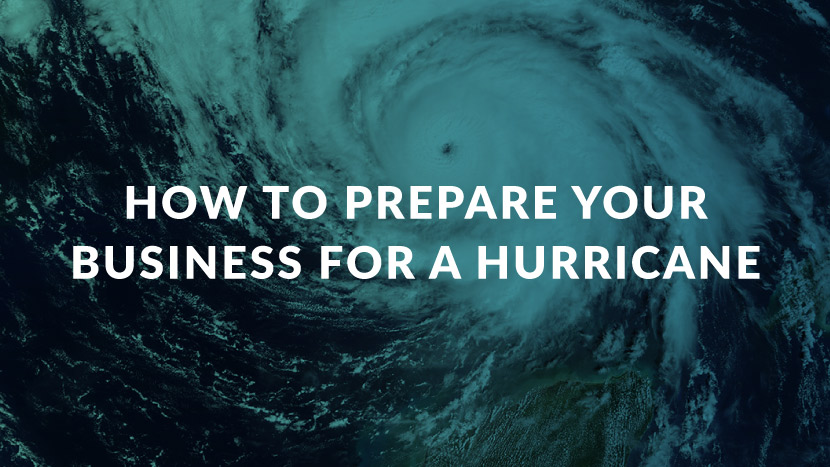Hurricane Preparation for Businesses: Essential Steps
Hurricane preparation for businesses is crucial, especially as the storm season approaches. With the potential for severe weather events to disrupt operations, it is vital for organizations to implement a comprehensive business emergency plan. This plan should encompass hurricane safety measures, ensuring that employees are trained and aware of evacuation routes and shelter locations. Moreover, data backup strategies must be in place to protect vital information from being lost during power outages. By prioritizing facility security for storms and reviewing insurance for natural disasters, businesses can safeguard their assets and maintain continuity during tumultuous times.
As the hurricane season looms, organizations must focus on strategies to withstand natural disasters and safeguard their operations. Proper storm preparedness involves not only developing thorough emergency protocols but also enhancing infrastructure resilience against extreme weather. Businesses should consider various protective measures, including securing outdoor items and reinforcing windows and doors, as part of their facility security efforts. Additionally, maintaining robust data protection plans is essential to prevent significant losses during power interruptions. Ultimately, by implementing proactive measures, businesses can enhance their resilience and ensure a swift recovery from potential hurricane impacts.
The Importance of Hurricane Preparation for Businesses
As hurricane season approaches, businesses must recognize the critical importance of proper preparation. Hurricanes can disrupt operations, damage property, and impact employee safety, making it essential for organizations to develop a robust emergency plan. A well-structured business emergency plan incorporates strategies for mitigating the effects of severe weather, ensuring that businesses can quickly adapt and respond to unpredictable circumstances. By prioritizing hurricane preparation, companies not only safeguard their physical assets but also protect their workforce and maintain business continuity.
Incorporating hurricane safety measures into daily operations is another key aspect of preparation. This entails training employees on emergency protocols, conducting regular drills, and ensuring that all staff members understand their roles during a storm. By fostering a culture of preparedness, businesses can enhance their resilience against natural disasters. Furthermore, engaging with local emergency services and community resources can strengthen a business’s response capabilities, enabling them to navigate the challenges posed by hurricanes more effectively.
Developing a Business Emergency Plan
Creating a comprehensive business emergency plan is paramount for hurricane preparedness. This plan should address various scenarios, such as evacuation procedures, shelter locations, and communication strategies. Assigning designated responsibilities ensures that tasks are clearly defined, enabling swift action when faced with a hurricane. Regular training sessions and drills can help reinforce this plan, ensuring that employees are familiar with the procedures and can act confidently in times of crisis.
Additionally, businesses should review and update their emergency plans annually, taking into account any changes in personnel, infrastructure, or resources. This proactive approach helps to identify potential vulnerabilities and adapt strategies accordingly, ensuring that the business remains prepared for any eventualities. By investing in a solid emergency plan, businesses can significantly reduce the impact of hurricanes on their operations.
Securing Facilities Against Hurricanes
Facility security for storms is a crucial aspect of hurricane preparedness. Businesses should conduct thorough inspections of their premises to pinpoint vulnerabilities that could be exacerbated by severe weather. This includes reinforcing windows and doors, installing storm shutters, and securing outdoor items that could become hazardous projectiles in high winds. By making these upgrades, businesses can minimize property damage and ensure the safety of their employees and customers.
Moreover, businesses should consider the strategic placement of sandbags or barriers to mitigate flooding, as well as ensuring proper drainage systems are in place. Implementing these facility security measures not only protects physical assets but also instills confidence among employees, customers, and stakeholders that the business is prepared to weather the storm.
Backing Up Data and Critical Systems
Data backup strategies are essential to ensuring business continuity during and after a hurricane. Regularly backing up critical data and documents can prevent devastating losses due to power outages or equipment failures. Businesses should utilize cloud-based storage solutions or off-site backups to enhance data redundancy. This approach allows for quick recovery of essential information, minimizing downtime and operational disruptions.
In addition to data backups, businesses should also implement surge protectors and uninterruptible power supplies (UPS) to safeguard electronic equipment. These measures can help maintain essential operations during power disruptions and ensure that systems remain functional even in adverse conditions. By prioritizing data protection, businesses can navigate the challenges posed by hurricanes with greater confidence.
Establishing Effective Communication Channels
Establishing effective communication channels is vital for businesses preparing for hurricanes. Clear communication helps to disseminate important information and updates to employees, customers, and stakeholders before, during, and after a storm. Utilizing multiple methods, such as email, text messaging, social media, and phone alerts, ensures that all individuals are informed and can respond appropriately to changing circumstances.
Designating spokespersons or communication coordinators can also enhance communication effectiveness. These individuals can provide timely updates and instructions, helping to alleviate confusion and ensure everyone is on the same page. By fostering a proactive communication strategy, businesses can mitigate risks and enhance their ability to respond to hurricanes and other natural disasters.
Reviewing Insurance Coverage
Reviewing insurance coverage is a critical component of hurricane preparedness for businesses. Adequate insurance ensures that businesses are protected against property damage, business interruption, and other potential losses incurred during hurricanes. Companies should carefully evaluate their policies to confirm they have sufficient coverage for various natural disasters, including flood insurance, which is often not included in standard policies.
Developing a financial contingency plan is equally important. This plan should outline strategies to address potential revenue losses and increased expenses during and after a hurricane. By preparing for financial challenges, businesses can enhance their resilience and ability to recover from devastating storms, ensuring a quicker return to normal operations.
Key Takeaways for Businesses
The key takeaways for businesses in preparing for hurricane season revolve around proactive planning and risk mitigation. By investing time and resources into emergency preparedness, businesses can safeguard their assets, protect their employees, and maintain continuity of operations. A comprehensive approach should encompass developing emergency plans, securing facilities, backing up data, and ensuring effective communication and insurance coverage.
Ultimately, prioritizing safety, communication, and resilience will enable businesses to navigate hurricane season with greater confidence. As natural disasters continue to pose significant threats, being prepared can mean the difference between recovery and irreparable loss. By committing to thorough preparedness measures, businesses can protect their operations and contribute to the well-being of their communities.
Frequently Asked Questions about Hurricane Preparedness
Understanding hurricane preparedness is vital for businesses, especially in high-risk areas. Many may wonder why it’s essential to prepare for hurricane season at all. The reality is that severe weather events can disrupt operations and endanger employees. Developing a solid emergency plan not only mitigates risks but also protects the overall integrity of the business. Adequate preparation can significantly enhance the chances of surviving a storm with minimal impact.
Another common question revolves around the specific components of an emergency preparedness plan for hurricanes. Businesses should ensure their plans include evacuation routes, communication protocols, and designated responsibilities. Conducting regular training and drills will help employees feel more confident and prepared to act in an emergency, ultimately improving safety and operational continuity.
Frequently Asked Questions
What are the key components of a business emergency plan for hurricanes?
A business emergency plan for hurricanes should include evacuation procedures, designated shelter locations, communication protocols, and continuity strategies. It’s important to assign specific responsibilities to personnel and ensure that all employees are trained on these procedures through regular drills.
How can businesses implement hurricane safety measures for their facilities?
Businesses can implement hurricane safety measures by assessing their facilities for vulnerabilities, reinforcing windows and doors, installing storm shutters, and securing outdoor items to prevent them from becoming hazards during a storm. Regular maintenance and upgrades can further enhance facility security for storms.
What data backup strategies should businesses consider for hurricane preparedness?
Businesses should adopt data backup strategies such as regular backups to cloud storage or off-site locations to ensure critical data is protected. Using uninterruptible power supplies (UPS) and surge protectors can help safeguard electronic systems during power outages caused by hurricanes.
How can businesses enhance facility security for storms during hurricane season?
To enhance facility security for storms, businesses should conduct thorough inspections to identify and address potential weaknesses. This includes securing outdoor equipment, installing storm shutters, and ensuring that all emergency exits are accessible and functional.
What type of insurance for natural disasters should businesses consider in hurricane-prone areas?
Businesses in hurricane-prone areas should review their insurance policies for adequate coverage against property damage and business interruption. Additional coverage such as flood insurance may be necessary, as standard policies often exclude flood-related damages.
| Key Point | Description |
|---|---|
| Develop a Comprehensive Emergency Plan | Create a detailed plan with evacuation routes, shelter locations, and communication protocols. Train employees regularly and update the plan annually. |
| Secure Facilities and Infrastructure | Inspect and strengthen your building to withstand storms. Secure outdoor items and reinforce windows and doors. |
| Backup Data and Critical Systems | Regularly back up data to prevent loss, using cloud storage or off-site backups. Use surge protectors and UPS to protect equipment. |
| Establish Communication Channels | Set up reliable communication methods to update stakeholders before, during, and after a hurricane using multiple platforms. |
| Review Insurance Coverage and Financial Preparedness | Ensure insurance covers hurricane-related damages and create a financial contingency plan for potential losses. |
Summary
Hurricane preparation for businesses is essential to minimize risks associated with severe weather events. As the hurricane season approaches, proactive planning and preparation can significantly protect assets, ensure employee safety, and maintain operational continuity. By developing a comprehensive emergency plan, securing facilities, backing up critical data, establishing effective communication channels, and reviewing insurance coverage, businesses can navigate the challenges posed by hurricanes more confidently. Investing in these measures not only safeguards business operations but also enhances resilience against potential disruptions, making it imperative for all businesses in vulnerable areas to prioritize hurricane preparedness.







